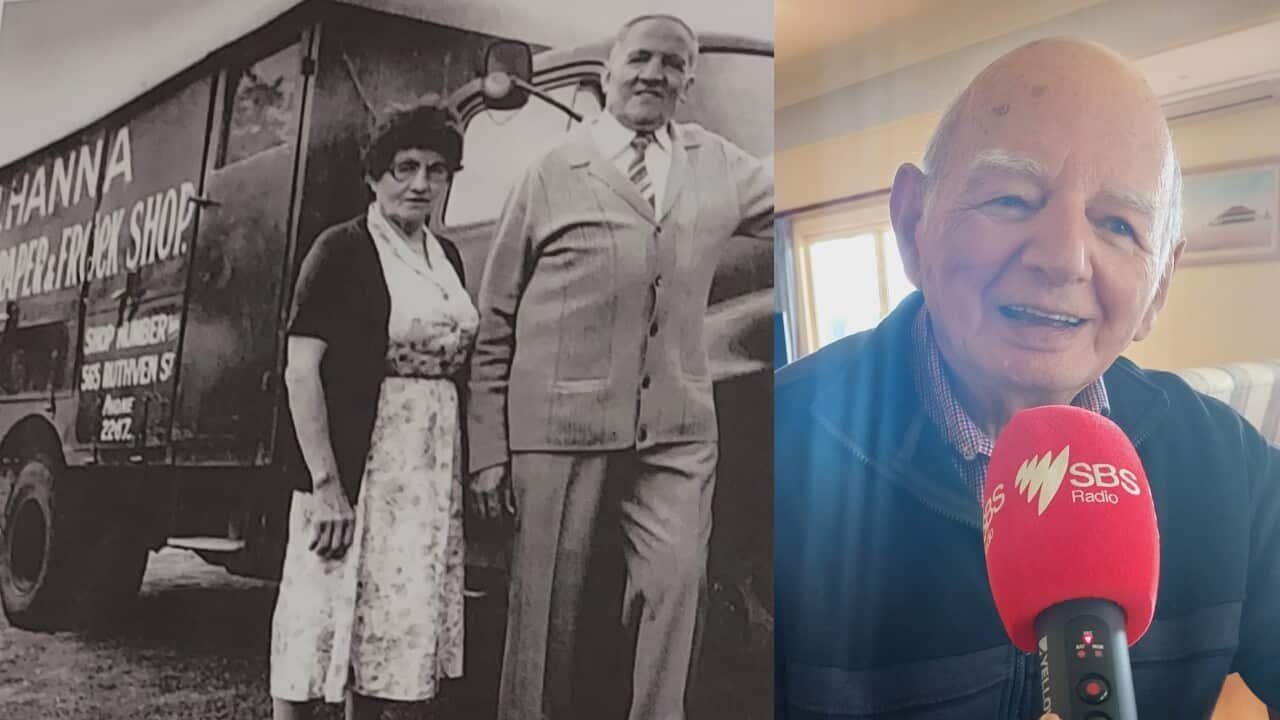Key points:
- Banking lawyer Dr Ali Zabib has called out politicians and the judiciary for not intervening to quell the crisis
- A bank employee says staff are 'in the same boat' as depositors and should not be attacked
- Two Lebanese depositors express their fears and humiliation about not getting access to their savings
Banks in Lebanon's capital of Beirut began a three-day shutdown on Monday, following a decision by the union of banks to halt break-ins and depositor holdups.
It follows a series of high-profile incidents at bank branches, in which depositors attempted to withdraw US dollar savings that had been frozen for the past three years.
The bank shutdown occurred three days before an announcement by both the Association of Banks and the Depositors' Association that a bank strike was not an appropriate solution to cope with the crisis.
Lebanese Interior Minister, Bassam Mawlawi, called for an emergency meeting to discuss repeated bank holdups by depositors and measures to deal with the crisis.
Meanwhile, the Lebanese Banking Association stressed that banks would not stand silent in light of the 'war' of recovering deposits and that maintaining the safety of all bank employees was among its top priorities.
The shutdown was in response to an escalation in conflict with depositors on Friday, 16 September.
Lebanese depositors, including one allegedly armed with a hunting rifle, had broken into at least five banks over the previous days to demand the release of their trapped savings, a sign of growing chaos in the Mediterranean nation.
Last Friday's raids were the most in a single day, and raised the possibility that more desperate depositors would try to extract their money by force.
The break-ins reflect public anger at the banks' strict informal controls on cash withdrawals, a byproduct of the financial crisis.
One example of the controls is that customers can only withdraw their savings in Lebanese pounds, not US dollars, resulting in a devaluation of their money and a ripple effect of poverty and crime.
Lawyer Dr Ali Zbeeb , who specialises in international banking affairs, spoke to SBS Arabic24's “Good Morning Australia” program from Beirut, highlighting the illegality of withholding deposits.
Dr Zbeeb , who is the deputy chairman of the Committee for the Protection of Depositors' Rights and a representative of the Bar Association currently in talks with the International Monetary Fund and Parliament, says he considered that the destruction of any country begins with the destruction of its judiciary.
The judiciary is in a deplorable state and a large number of judges are complicit with banks and political forces.
Dr Zbeeb said that the issue of recovering deposits was being dealt with in a 'mafia' manner in Lebanon, contrary to what other countries had done when faced with similar banking crises.
According to Dr Zbeeb, the political authority and the supervisory authority represented by the Central Bank, as well as commercial banks, are partners in this crisis, which consists of illegal detention of deposits
There is no law regulating the movement of capital in Lebanon, he says.
“The House of Representatives has not passed a law on capital control," Dr Zabib said.
"Therefore, any refusal of banks to transfer money abroad is illegal and unconstitutional."
As to whether resorting to force to recover deposits is illegal, Dr Zbeeb says: “Article 429 of the Lebanese Penal Code criminalises (this action) enforced with a fine of 200,000 pounds. If it occurs by force of arms or more than three people, the penalty is imprisonment ranging from three months to two years.”
It is worth mentioning that this incrimination is only in the event that the depositor cannot resort to an authority, he said.
In the current situation, the judiciary is in retreat and the depositor has no access to a judicial authority. Have you heard of anywhere else in the world where the judiciary system is in hiding?
He spoke of his belief that some bank owners were colluding with prominent politicians and others to transfer funds overseas.
Lebanese citizen and depositor, Antoine Gerges, expressed his sadness at the loss of his life savings.
Mr Gerges, 75, who is retired, says he had saved the money to provide for himself and his family in his old age.
“I deposited my lifetime savings to find myself permitted to withdraw 120 dollars a month which does not even cover the cost of our electric generator," Mr Gerges said.
Should we carry weapons to get our money back? We demand our rights!
Mona Youssef, who is struggling to make ends met, told SBS Arabic that she feared for her future due to the actions of Lebanese banks.
We experience daily tragedy and suffering. They robbed us, humiliated us and blamed us for speaking out against the bank employee. I know that the employee has no fault, but patience has its limits.
The current crisis has enveloped bank employees who say they are now frightened to go to work due to repeated armed incursions.
One employee who did not want her name published said:
For three years, we have been treated as if we were the ones who caused the crisis. We are employees and we must comply with Bank of Lebanon circulars. We endure insults and force. Finally, we face weapons as if we are not going to work, but to a battlefield.
She went on to say: “Your money is not with us. Go to those who stole it from you and ask for it.
"We have also lost our deposits and we have parents who fear for our safety. Why can't you see that we are victims as well?”
Listen to the testimonies and interview with Dr Zbeeb in the audio file attached to the picture above.
Did you like the article? Listen to the “Good Morning Australia” program from Monday to Friday from 6am to 9am Eastern Standard Time via digital radio and the SBS Radio app available for free on





